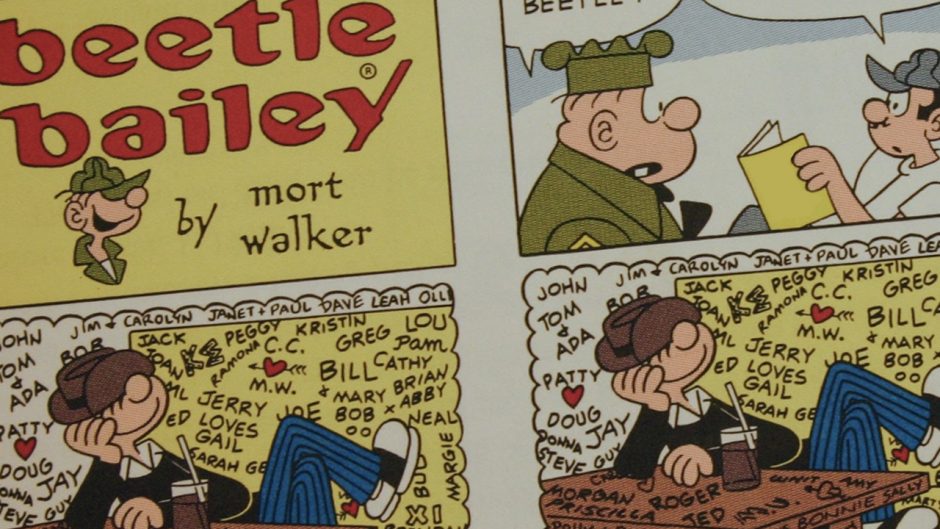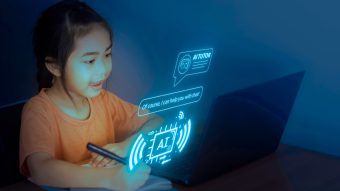Sept. 29, 2020
Contact: Kenny Gerling, gerlingk@missouri.edu
University Libraries go far beyond books (though books are great!) and include everything from green screens to cuneiform tablets. The libraries have many free resources to help every member of the University of Missouri community and contain hidden gems worthy of wider attention.
To demystify the stacks, we asked Navadeep Khanal, e-learning librarian, and Jeannette Pierce, associate university librarian for research, access and instructional services, to share some of the lesser-known services and how to make the most of what Mizzou Libraries have to offer. Here are their favorites:
1. Special Collections Exhibits
Curated, all-online resources that go in-depth on topics ranging from old Mizzou course catalogs to the spread of the 1918 Spanish Flu in Columbia (and much more).

Jeannette Pierce: I’ve used these exhibits to help people become more aware of what’s in special collections. These are great jumping-in points for knowing the types of materials we have.
Navadeep Khanal: Special collections are a hidden treasure. The Mort Walker Collection and comic art special collection are really unique to Mizzou. In special collections, you can find things that go way back and material that is fairly current. The poster collection from World Wars I and II, for example, would be great to use in a class.
Pierce: I also want to highlight an exhibit organized by Yueheng Lyu, one of our undergraduate students. The Hiller Collection is a recent gift acquisition and the images are digitized from glass slides. It’s a neat collection of images from 1945-48 China.
2. Learning Modules
Learning modules help instructors looking to engage students in the essentials of research and citation, and students exploring the ins and outs of Mizzou Library resources. Tools like the Online Library Scavenger Hunt and the Avoid Plagiarism Tutorial help make learning (and teaching) easier for everyone.
Khanal: An example that sticks out to me was the J2100 module that covered information-gathering resources aimed at journalism majors. The journalism librarian meets with all sections of that course. But that’s a lot of information to provide in just one meeting. So, working with the subject librarian, we created the J2100 module to help students develop strategies to gather relevant information and to understand and critically evaluate news and information. Nearly 2,000 students have completed this module. Students were introduced to concepts and tools for fact checking, verifying fakes and evaluating websites. Students also learned about stringing searches in Google and on our library site. There’s so much you can do in a Google search but people don’t know about it.
3. African American Communities database
This online database of primary source material (digitized pamphlets, newspapers and personal correspondence, among other items) documents many aspects of Black communities in cities and towns around the United States, including St. Louis.
Pierce: African American Communities is a great example of the rich array of resources that can be pulled together in a primary source database. You can find text, images and video all in one resource, and they are all set up so you can search for a topic, or just explore and see what is interesting. Working with primary source material really helps you relate to how things were being experienced at the time they were happening.

Khanal: Primary sources give you the sense of touching history itself. For example, we also have 4,000-year-old cuneiform tablets. If students are doing research, they can handle those. There is some magic, some connection to history when someone 4,000 years ago touched an object, and now you are, too. That’s the value of primary source materials.
Pierce: When you have the opportunity to experience working with original sources, you actually get to become the historian and ask your own questions. Whether in person, in special collections or using digital surrogates in a database, the Libraries support a wide range of ways to access and use primary sources.
4. University Libraries online workshops and classes
Ever wondered how to publish an academic article? How about an introduction to Python, and other coding basics? Mizzou Libraries has you covered. A number of online workshops and classes are available to help you develop the skills you need.
Pierce: We offer a variety of opportunities — both through academic classes and open workshops. Workshops are noncurricular and focus on skills and knowledge that are interdisciplinary or support lifelong learning. They give individual staff and faculty members a chance to build skills and learn more about how librarians can support their work. Many of these are also available on our YouTube channel.
5. Free access to the Chronicle of Higher Education
Get in-depth reporting about colleges and universities (including Mizzou) without the trouble of paying for your own subscription.
Pierce: With the University of Missouri subscription, users can go in and make an individual account and subscribe to daily and weekly updates. It’s great for keeping up with higher education across the country and understanding what we’re trying to accomplish at Mizzou in that context. We also have so many other periodicals in the library, and we try to purchase broadly and widely. Right from homepage we have a discovery tool and that lets you search across disciplines. Another newspaper database that I appreciate is Factiva, which features a large number of national and international publications.
Khanal: And for all of these resources, we also create guides. Not only do we have these periodicals, but we try to make sure people know how to find and use them.
6. E-Learning tools and resources
Looking to add pizazz to your online course? The library has links to tech you probably didn’t know existed — anyone up for making their own course-specific Jeopardy? Resources are broken down by topics such as Audio Video Creation and Interactive Teaching Tools. Though many of the pages were designed to help subject librarians, any instructor can use these tools to make class more dynamic, both online and in person.
Khanal: A lot of the time our librarians get only one session with a class, so how do you get them interested in what you are talking about? It’s the middle of day, students have busy lives, and you brought them in to talk about the library. It’s overwhelming if you present everything they need to know at once. Fun activities get the whole class engaged, and activities like Jeopardy can be assigned to an online class and monitored from a distance.
We can also support Tigers with sound booth and video equipment. We’re always looking at ways to be a resource to students beyond just books and journals.
7. Ask the librarians
Mizzou librarians are here to answer your questions, help familiarize students with library resources or to help you start your next big project. Call, text or email them to find what you need.
Pierce: We also have an online knowledge base that provides answers to frequently asked questions, for instance, how to find a dissertation. Chatting with a librarian is another popular service. A chat window pops up on our web page, and it’s easy to ask a quick question and receive an immediate response. We use Zoom for our consultation format, and students can set that up through MU Connect. If you’re not sure who to contact, you can ask via chat or send an email to our general email reference service at ask@missouri.email.libanswers.com.
More information about University Library services




